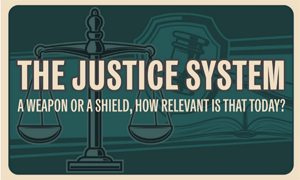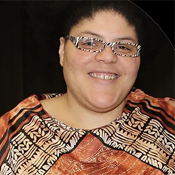Nearly 60 years after the historic , community activists and academics gathered on Martin Luther King Jr. Day to discuss the state of the justice system today in a virtual panel held by Dal’s Black Student Advising Centre.
 Panelists at the event, entitled The Justice System: A Weapon or a Shield, How Relevant is that Today?, shared their views on both the historical context of anti-Black racism in the justice system as well as their lived experiences.
Panelists at the event, entitled The Justice System: A Weapon or a Shield, How Relevant is that Today?, shared their views on both the historical context of anti-Black racism in the justice system as well as their lived experiences.
“Martin Luther King Jr. showed us that human rights and dignity should be paramount in any society,” said Oluronke Taiwo, Dal’s Black Student Advisor, during the discussion Monday (Jan. 17). MLK Day is a federal holiday in the United States and marks the birthday of Dr. King.
The conversation was moderated by Angela Simmonds, MLA for Preston and Dal Schulich School of Law alum (LLB’17).
'The law is not neutral'
“I think the place to start is the law,” says Olabisi Akinkugbe, assistant professor at the Schulich School of Law and the Viscount Bennet Professor of Law. “The law is not neutral.”
 Dr. Akinkugbe (shown left) connected racial injustice to economic and climate injustice, arguing that the justice system cannot be viewed solely through the criminal justice system.
Dr. Akinkugbe (shown left) connected racial injustice to economic and climate injustice, arguing that the justice system cannot be viewed solely through the criminal justice system.
“I do think it's worth emphasizing what the role of imagining the justice of a society outside of the court is as important as the court is,” he said.
Vanessa Fells, who is the director of operations for Nova Scotia Decade for People of African Descent Coalition, discussed the work of the soon to be operational African Nova Scotian Justice Institute, but also the historical context in the province that led up to its founding.
“The criminal justice system, or even the justice system, has through centuries done things like criminalize and overincarcerate, and even steal our children through … legislation,” she said.
Local insights
Also joining the panel was Jahvon Delaney, a third-year Dal law student from Bridgewater, Nova Scotia.
“I would say it was working with Nova Scotia Legal Aid that really opened my eyes to the ways in which the justice system could be used as a weapon, and I would say commonly it is used as a weapon more so for racialized individuals and minorities, opposed to a shield”
DeRico Symonds, a community activist who predominantly works with at-risk youth and also works for the provincial government on equity and anti-racist initiatives, offered his perspective on working towards a system free of the structural racism that plagues the criminal justice system.
“In 2019, when HRP proposed the purchase of an armored vehicle costing 368,000, this was denied by council and that money was diverted into an annual $300,000 operating budget for anti-Black racism efforts in city of Halifax,” said Symonds. “So, this is an at-home example of an alternative to policing and continually funding a broken system”
Correcting the overcriminalization of Black people
The panel concluded with a live Q&A with the audience. One audience member asked ‘How can the government increase trust with African Nova Scotian communities?”
The entire panel agreed that first, the government needs to listen.
Panelists also acknowledged the contributions of Bayard Rustin, an advisor to Dr. King and member of the 2SLGBTQIA+ community, and Correta Scott King, the wife of MLK Jr. and a civil rights leader in her own right.
Looking forward, an audience member asked the panel asked how do we create more allies to confront structural issues in the justice system and society?
 “Allyship can be difficult. It’s trying to put yourself in someone else’s shoes, to empathize and understand. It’s about listening, being open to having those tough conversations,” said Fells (shown right).
“Allyship can be difficult. It’s trying to put yourself in someone else’s shoes, to empathize and understand. It’s about listening, being open to having those tough conversations,” said Fells (shown right).
The soon-to-be open African Nova Scotian Justice Institute, funded by the province, is hoping to help correct the overcriminalization of Black people in Nova Scotia, who have all too often been and continue to be the target of a justice system stacked against them.
“So, a shield or a weapon? I think that depends on who you're asking,” said Symonds.
